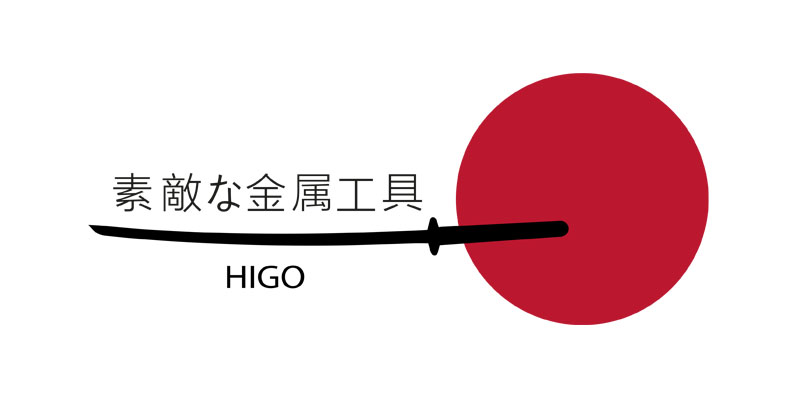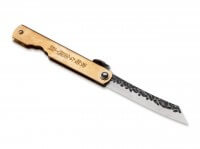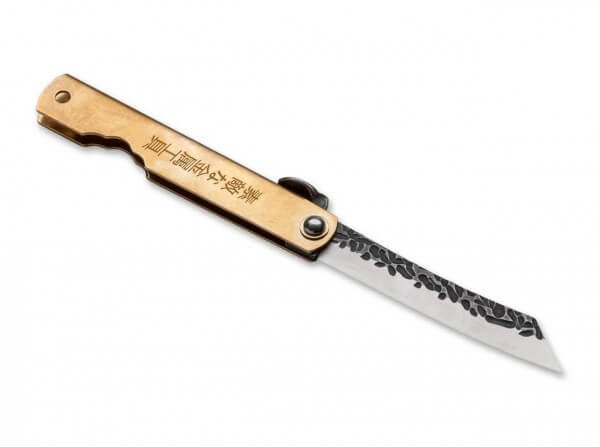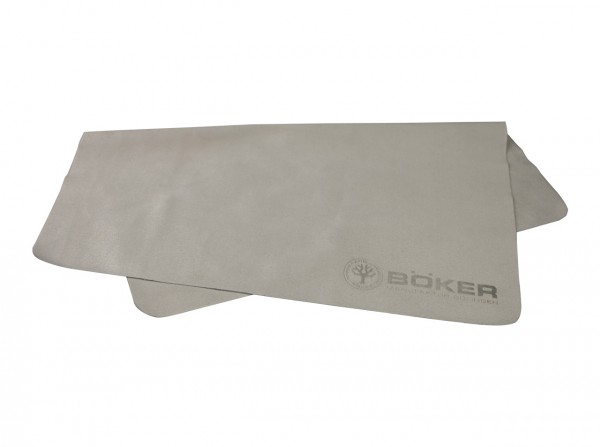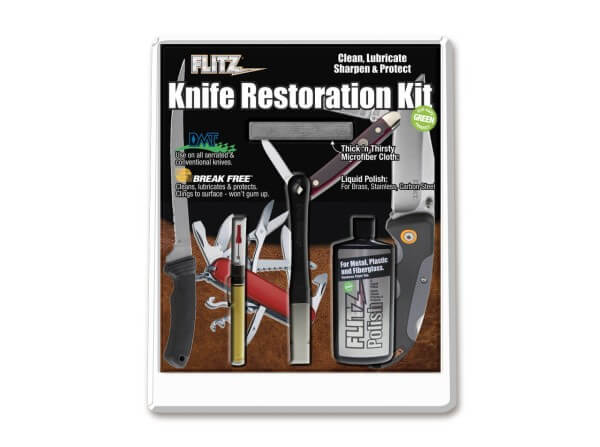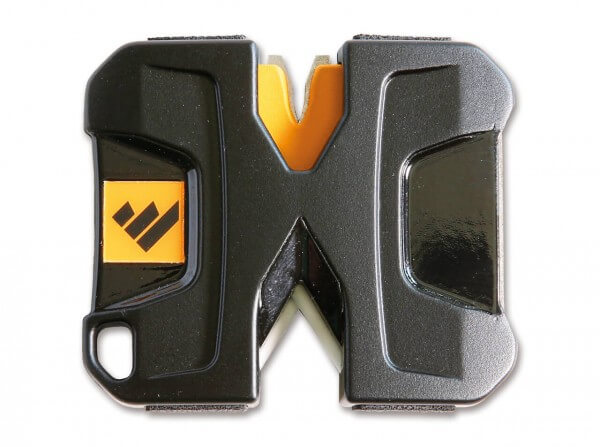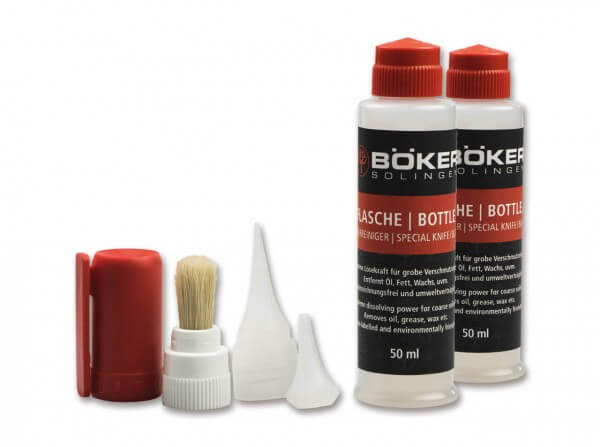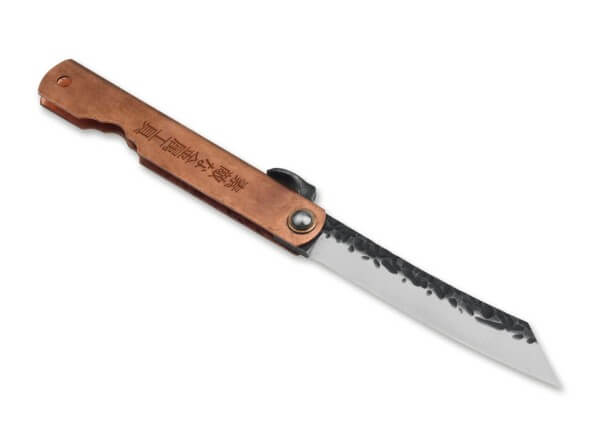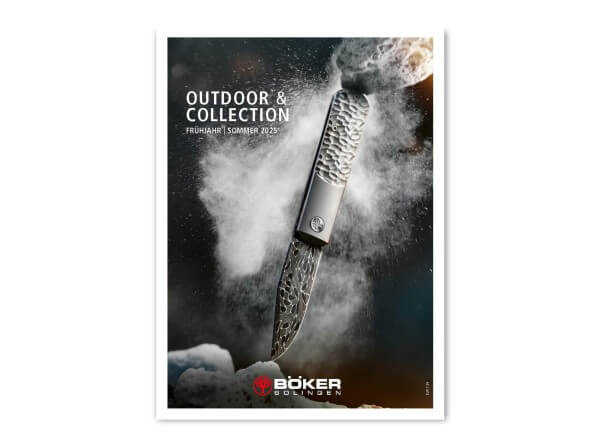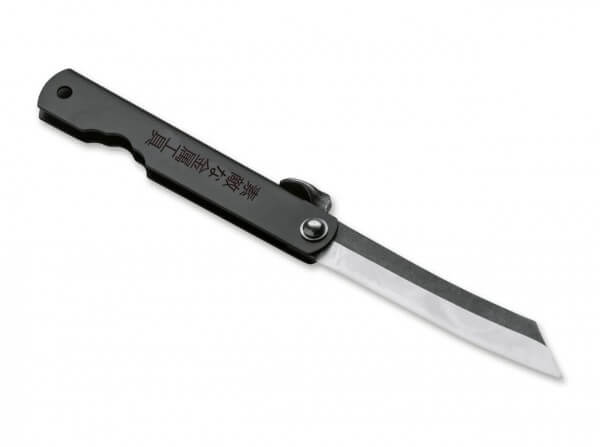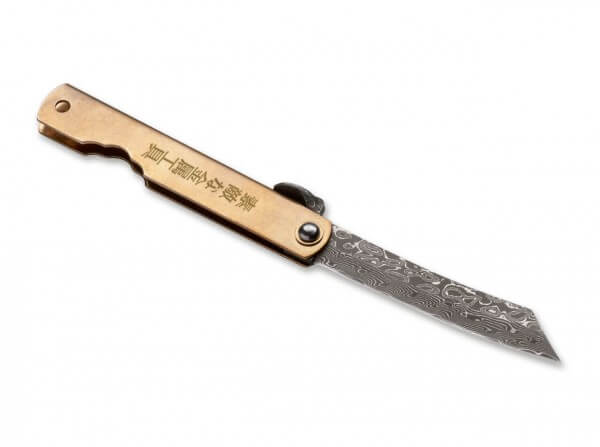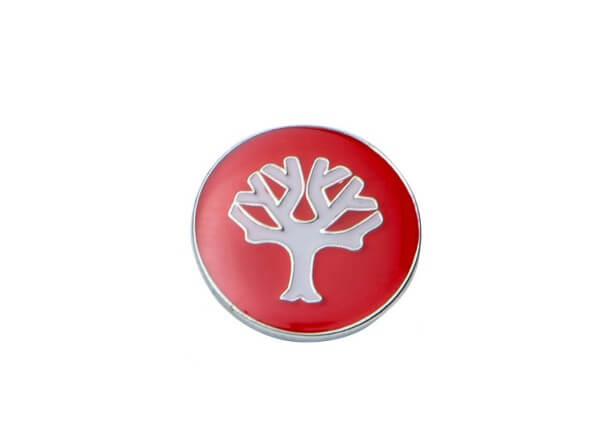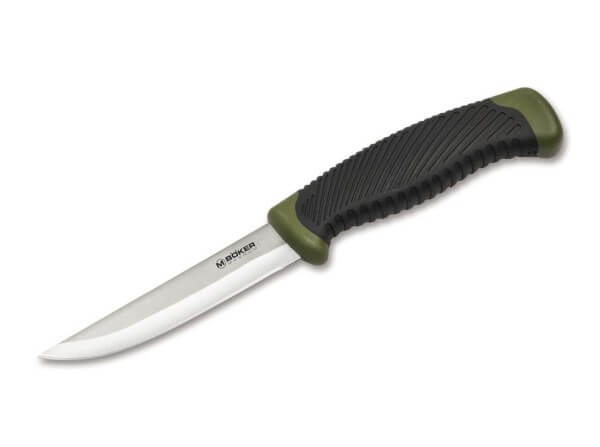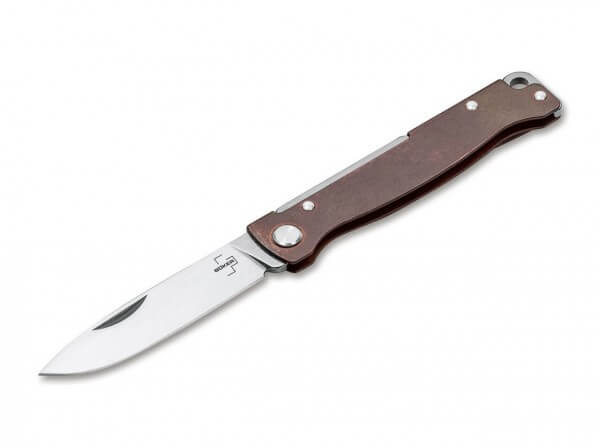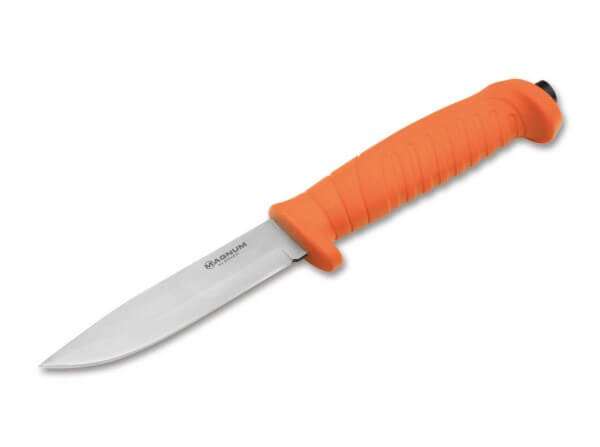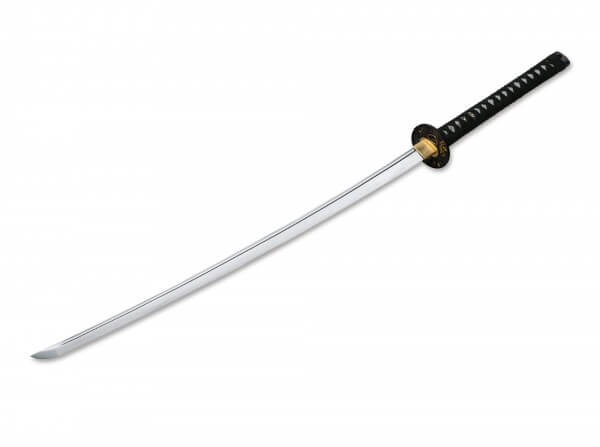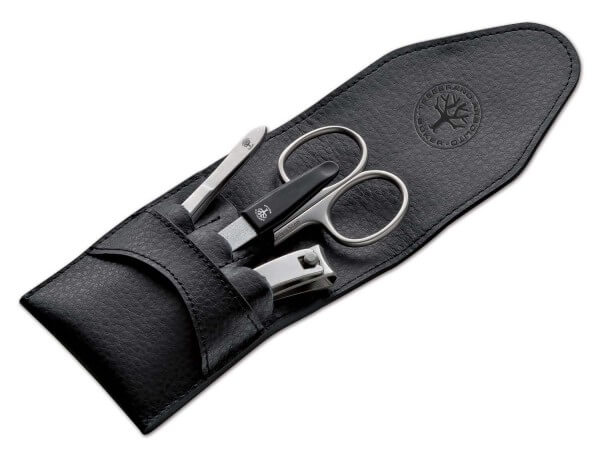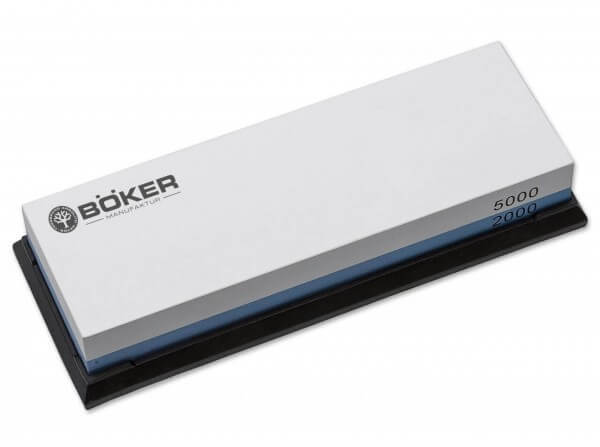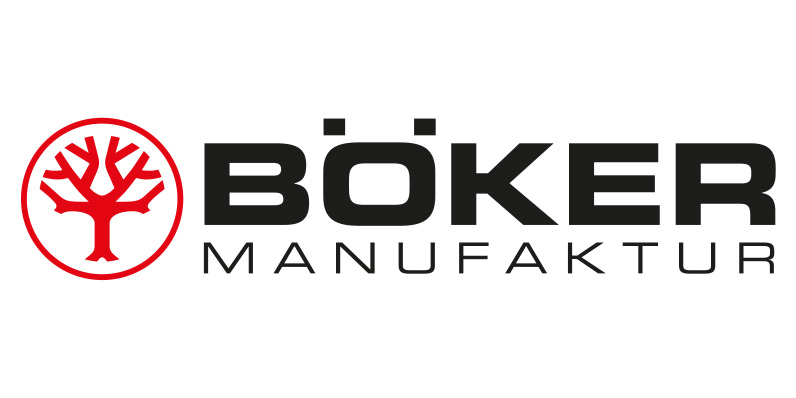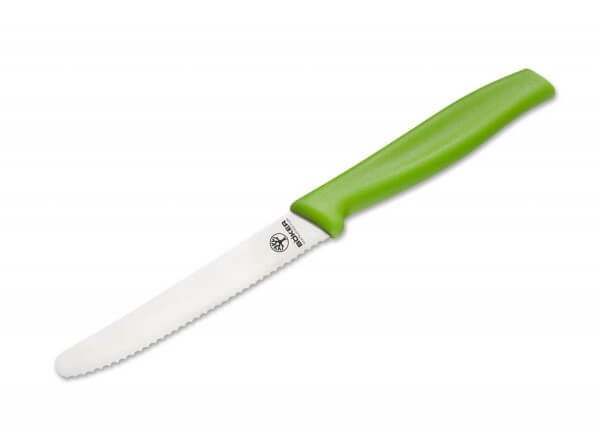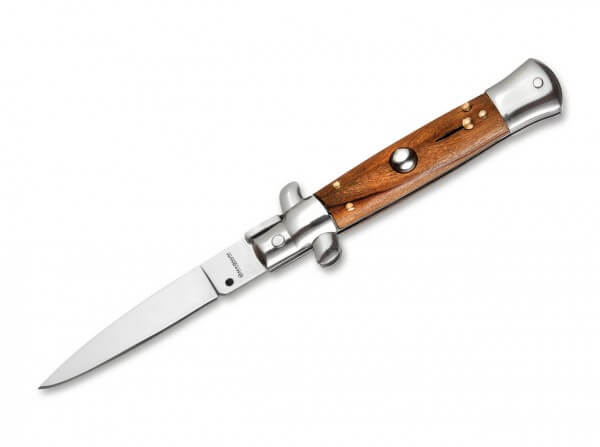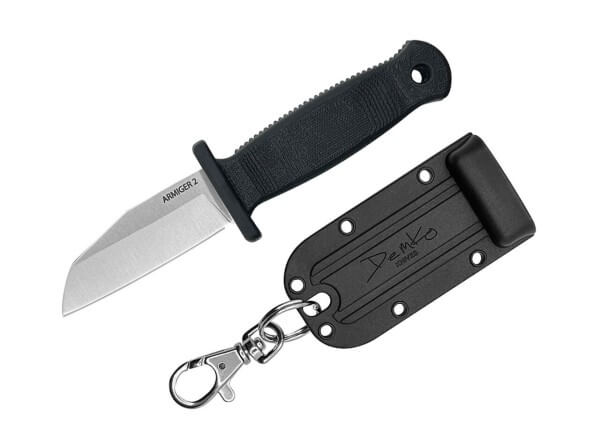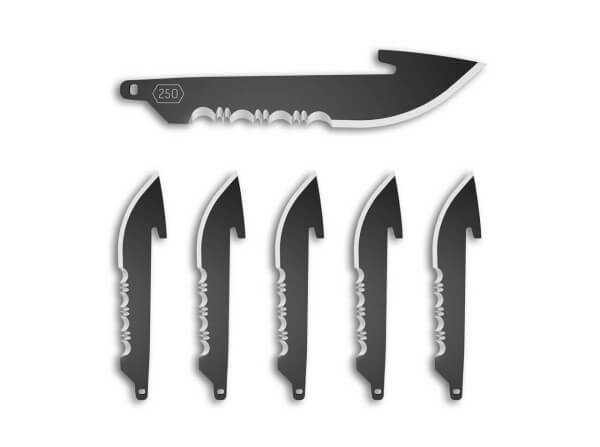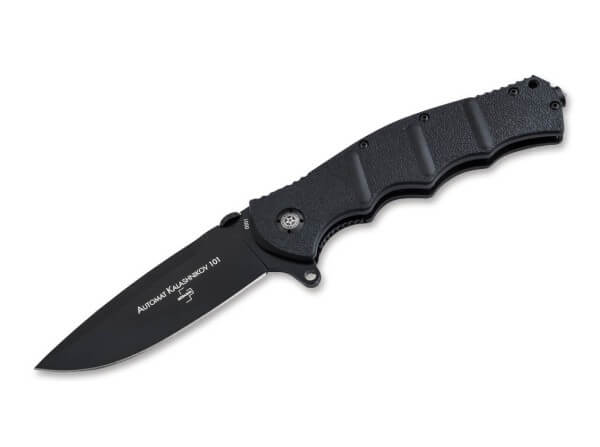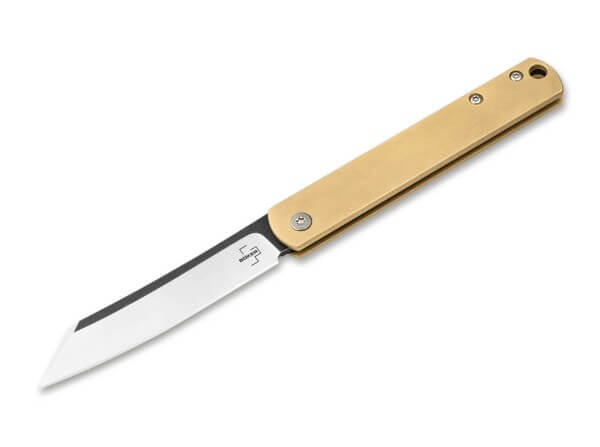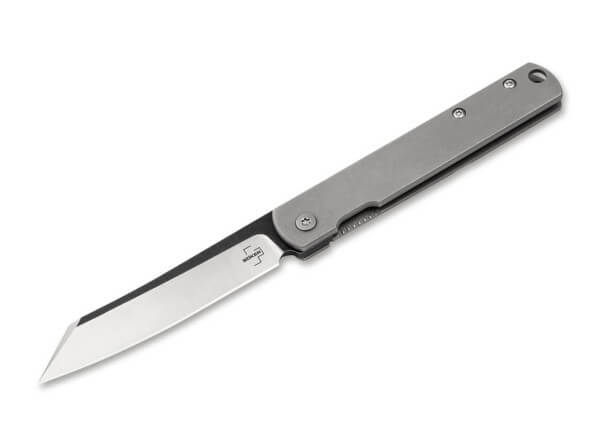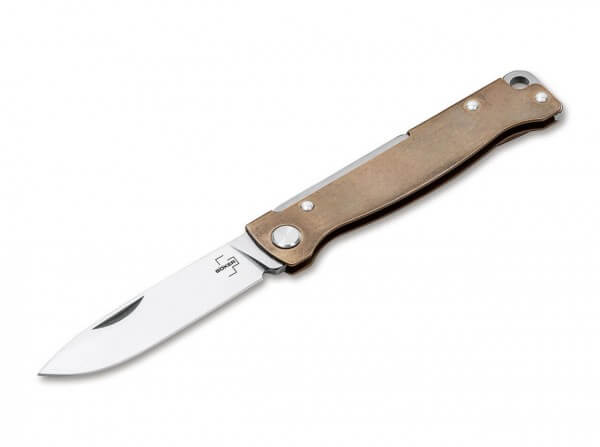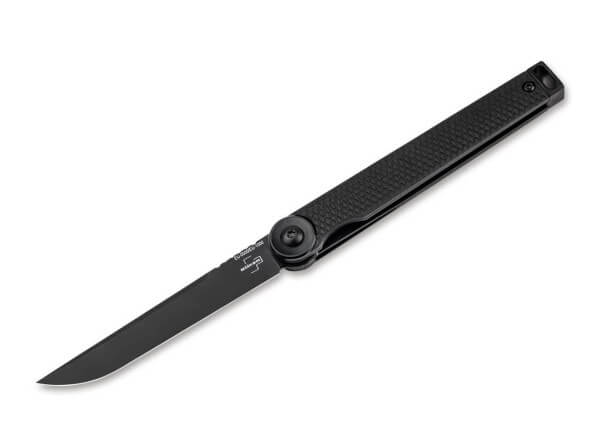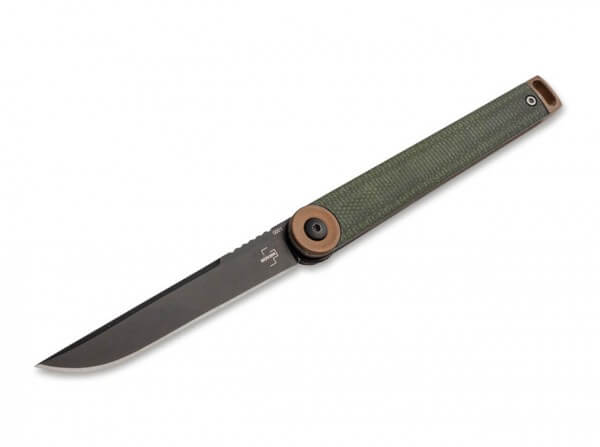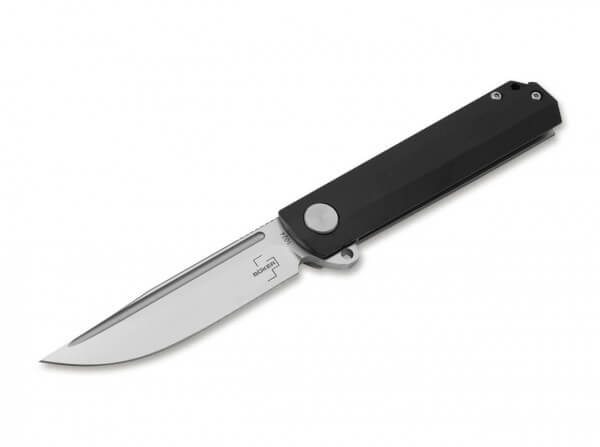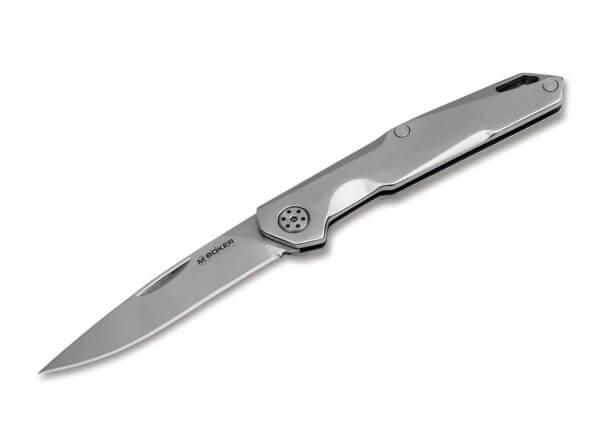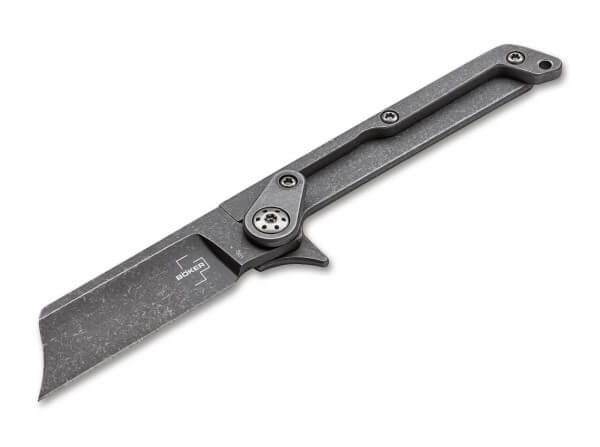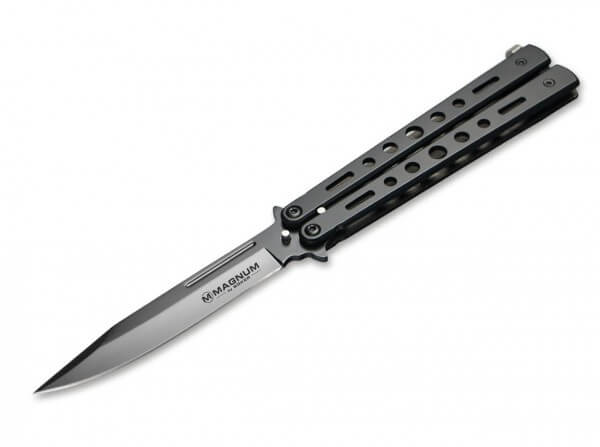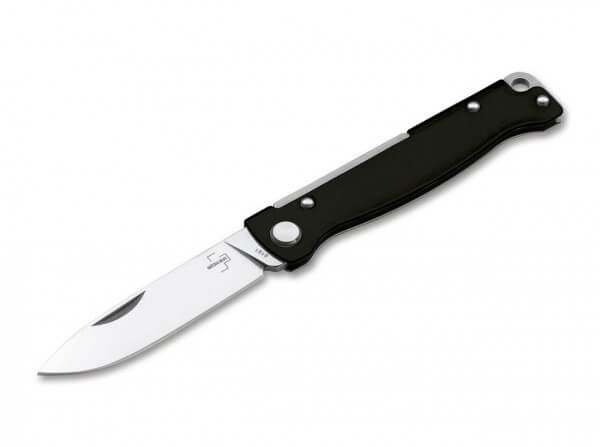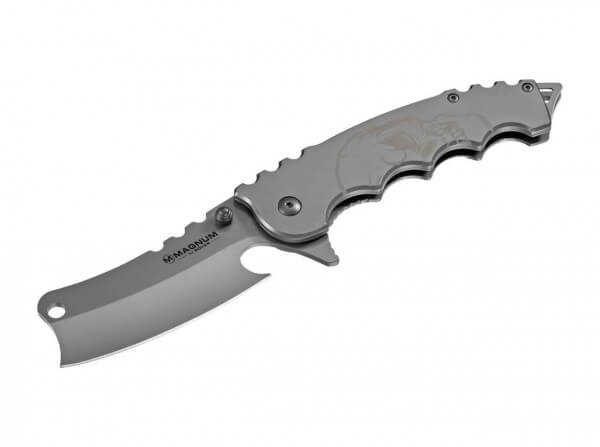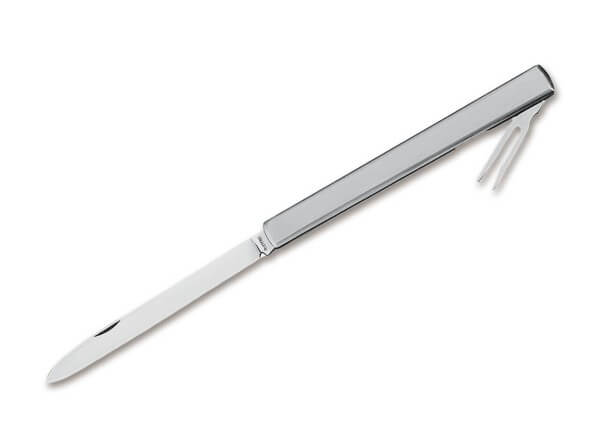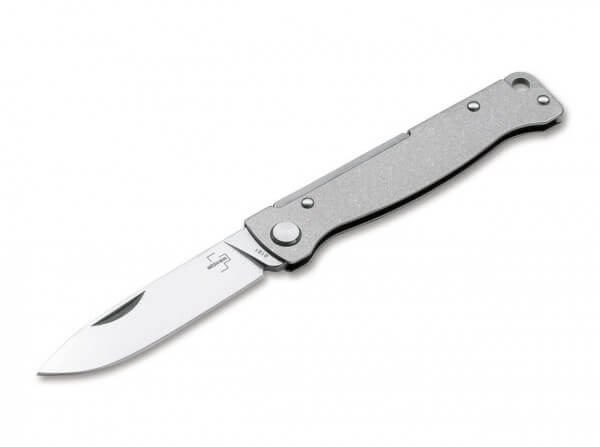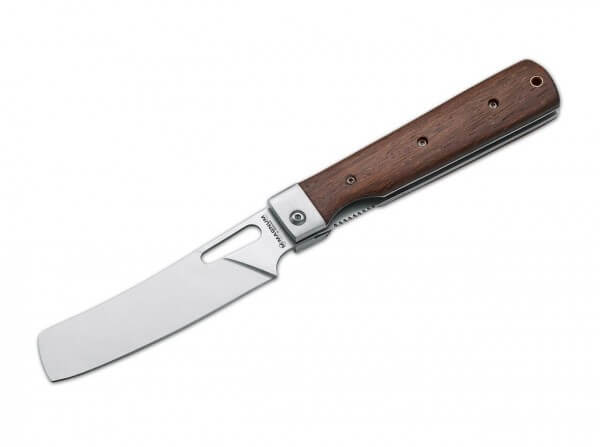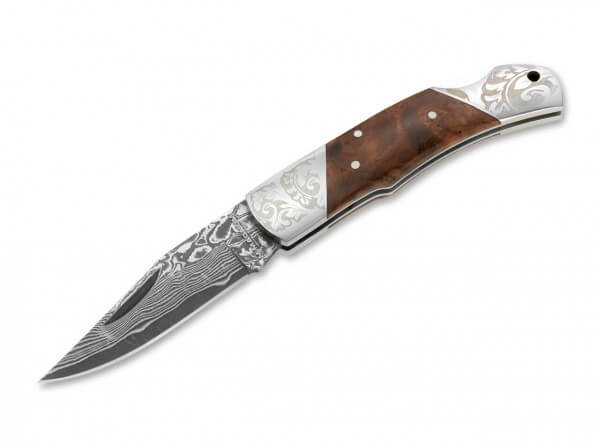*All prices include VAT, shipping costs will be charged separately.
In stock
- Type: Pocket Knife
- Engraving: Yes
- Brand: Higo
- Overall Length: 16,50 cm
- Blade Length: 7,50 cm
- Blade Thickness: 2,70 mm
- Weight: 40,00 g
- Blade Material: 7Cr13
- Handle Material: Brass
- Opener: Friction
- Opening: Manual
- Lock Type: Friction Folder
- Made in: Asia
- Item Number: 01PE313
Warning and safety information:
Cut injuries: The most common danger when using knives is the risk of cuts. Sharp blades can quickly penetrate skin and tissue.
Slipping of the knife: Improper or excessive pressure can cause the knife to slip, resulting in uncontrolled movements that can cause injuries.
Injuries due to falls: Knives should never be left unsecured or near table edges to prevent them from falling and injuring someone.
Blunt knives: Blunt knives pose a greater risk of injury as they require more force and can slip more easily. Knives should therefore be properly sharpened regularly.
Improper use: Using a knife for tasks for which it is not intended (e.g. as a lever tool) can not only damage the blade, but also lead to accidents.
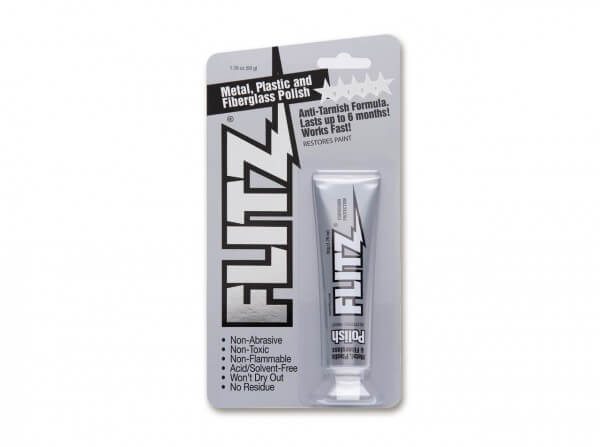
5 weeks approx. from order
- Polishing Paste
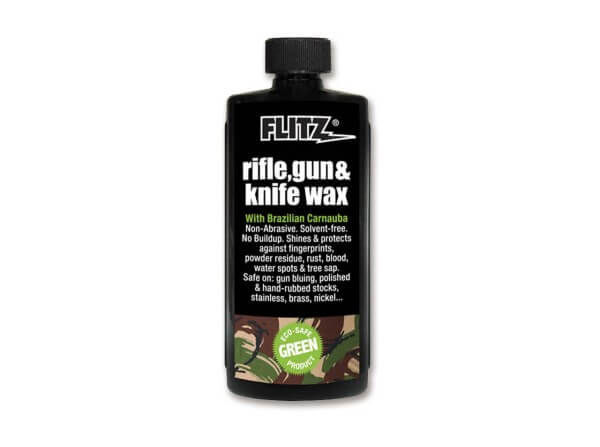
5 weeks approx. from order
- Accessory
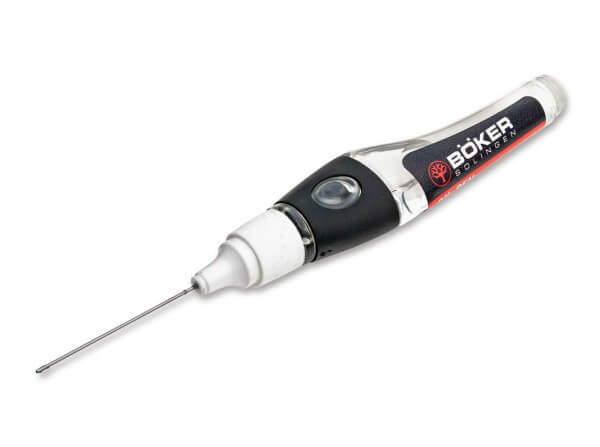
In stock
- Accessory
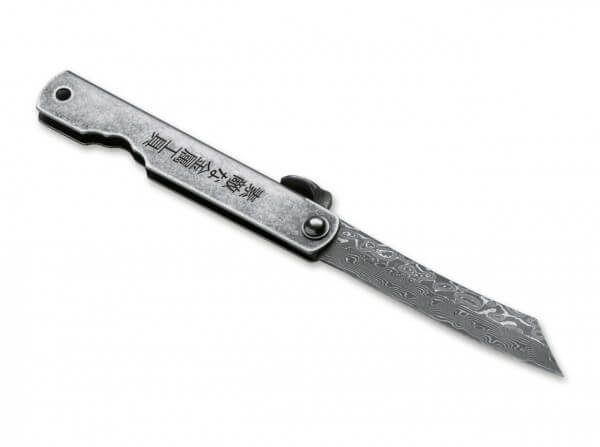
In stock
- Pocket Knife
- Damascus
- Stainless Steel
- Friction Folder
- Friction
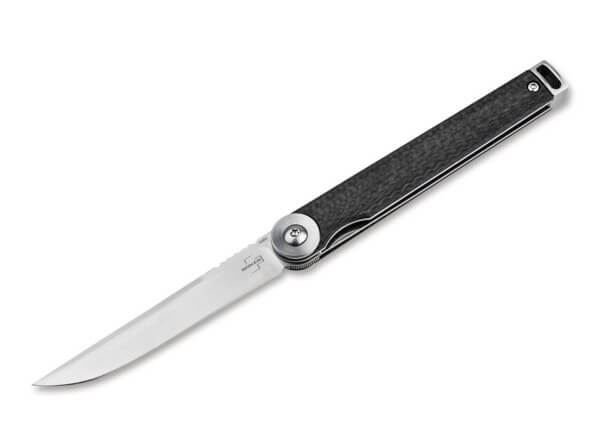
In stock
- Pocket Knife
- CPM-S-35VN
- Carbon Fibre
- Linerlock
- Flipper
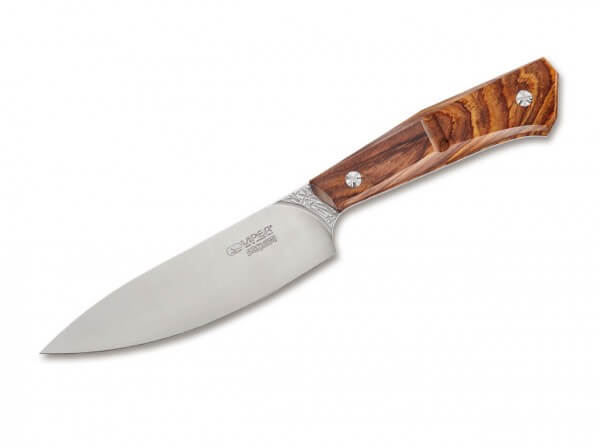
In stock
- Kitchen Knife
- Nitro-B
- Bocote Wood
- Jesper Voxnaes, Jens Anso
- Fixed

In stock
- Accessory | Shaving
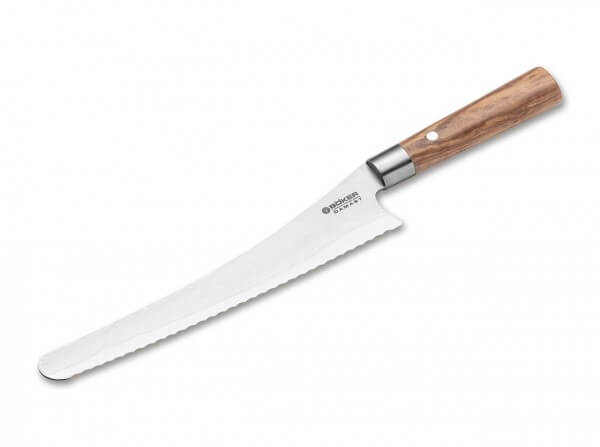
In stock
- Kitchen Knife
- Damascus
- Olive Wood
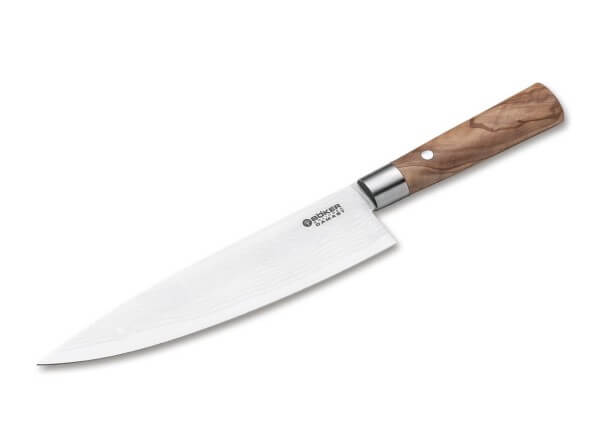
In stock
- Kitchen Knife
- Damascus
- Olive Wood
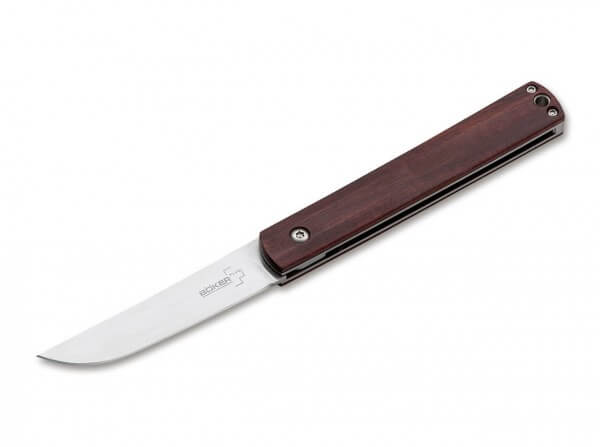
In stock
- Pocket Knife
- 440C
- Cocobolo Wood
- Kansei Matsuno
- Slipjoint
- Flipper
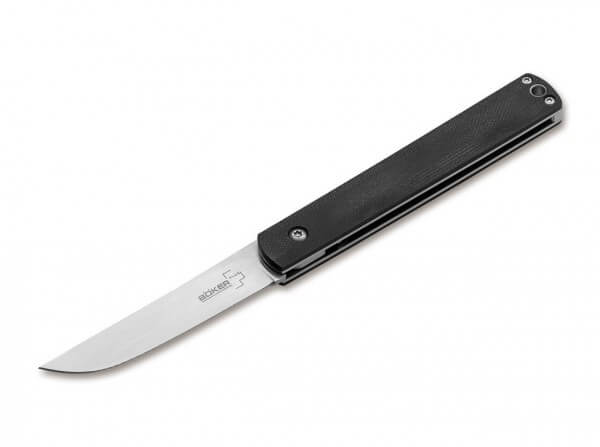
In stock
- Pocket Knife
- 440C
- G10
- Kansei Matsuno
- Slipjoint
- Flipper

In stock
- Pocket Knife
- Damascus
- Stainless Steel
- Friction Folder
- Friction
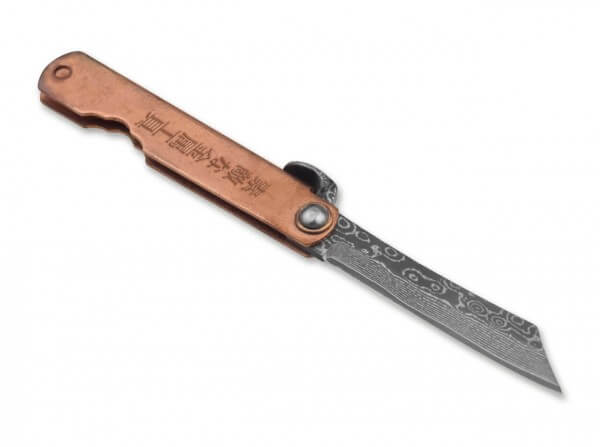
No longer available
- Pocket Knife
- Damascus
- Copper
- Friction Folder
- Friction
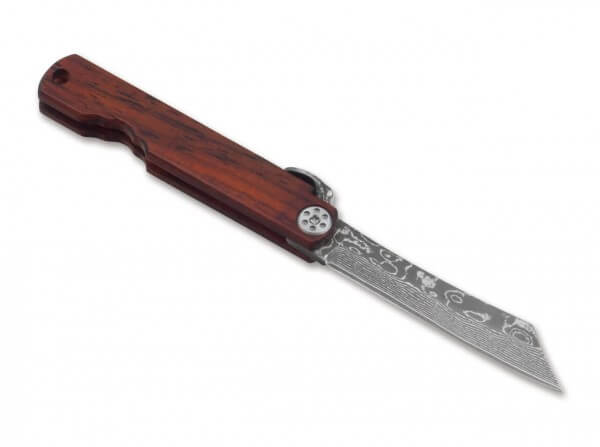
No longer available
- Pocket Knife
- Damascus
- Wood
- Friction Folder
- Friction
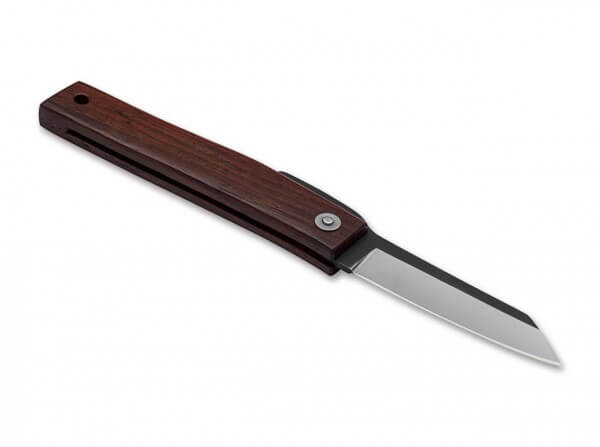
No longer available
- Pocket Knife
- Carbon Steel
- Rosewood
- Friction Folder
- Friction
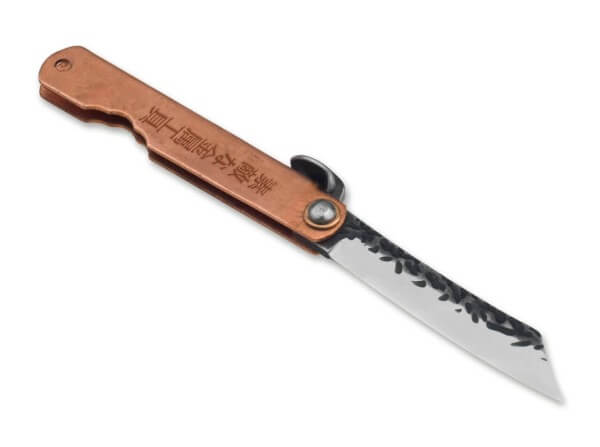
No longer available
- Pocket Knife
- 7Cr17MoV
- Copper
- Friction Folder
- Friction

In stock
- Pocket Knife
- 440C
- Cocobolo Wood
- Kansei Matsuno
- Slipjoint
- Flipper
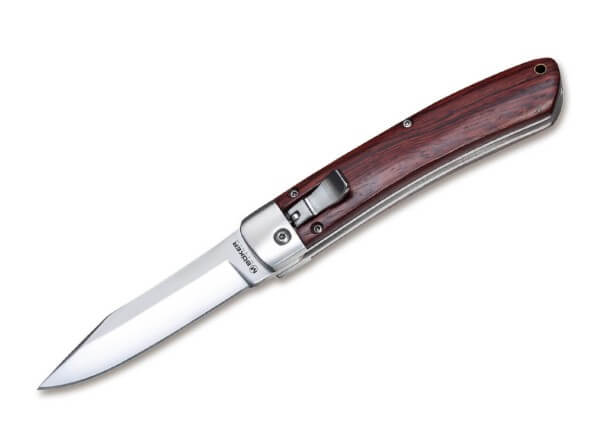
Approx. in stock from 29.04.2025
- Pocket Knife
- 440A
- Rosewood
- Push Button
- Push Button
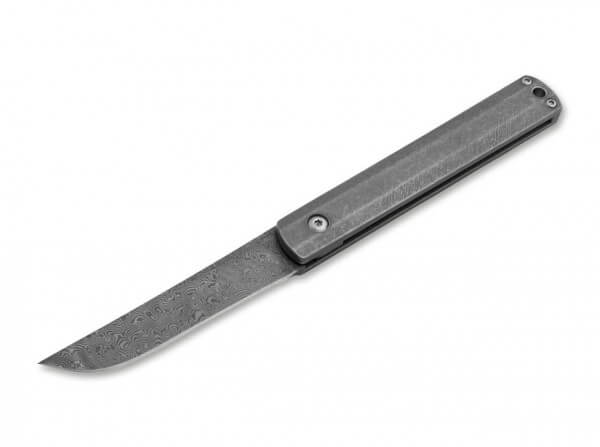
In stock
- Pocket Knife
- Damascus
- Titanium
- Kansei Matsuno
- Slipjoint
- Flipper

In stock
- Pocket Knife
- 440C
- G10
- Kansei Matsuno
- Slipjoint
- Flipper
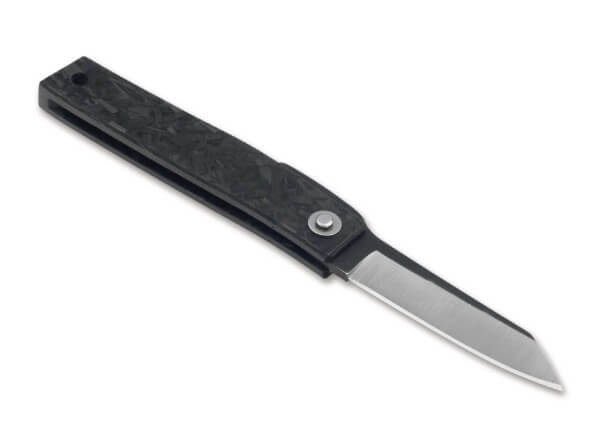
No longer available
- Pocket Knife
- 7Cr17MoV
- Carbon Fibre
- Friction Folder
- Friction
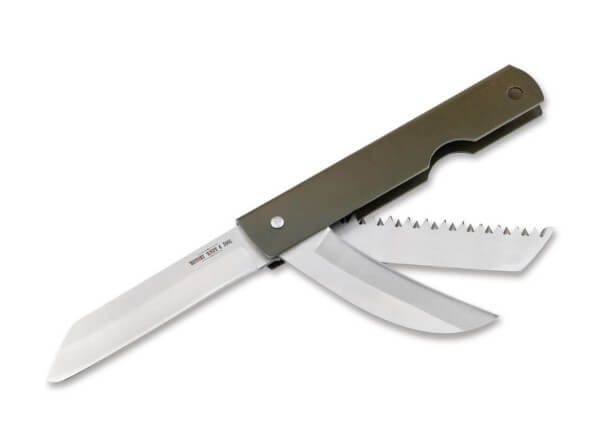
In stock
- Pocket Knife
- 440
- Stainless Steel
- Friction Folder
- No
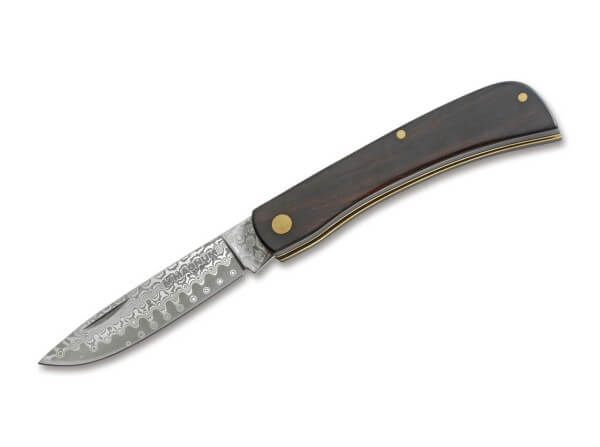
In stock
- Pocket Knife
- Damascus
- Ebony
- Slipjoint
- Nail Nick
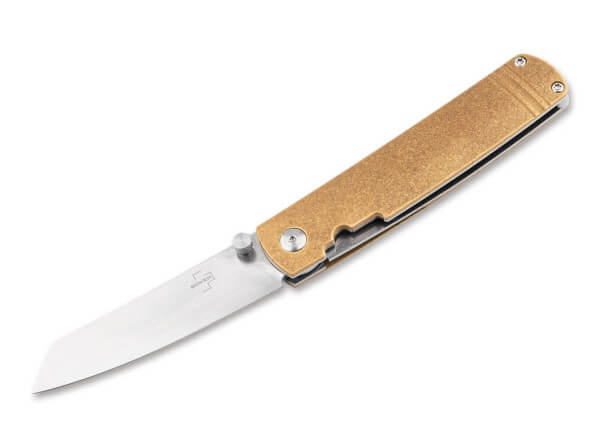
In stock
- Pocket Knife
- VG-10
- Brass
- Kansei Matsuno
- Linerlock
- Thumb Stud
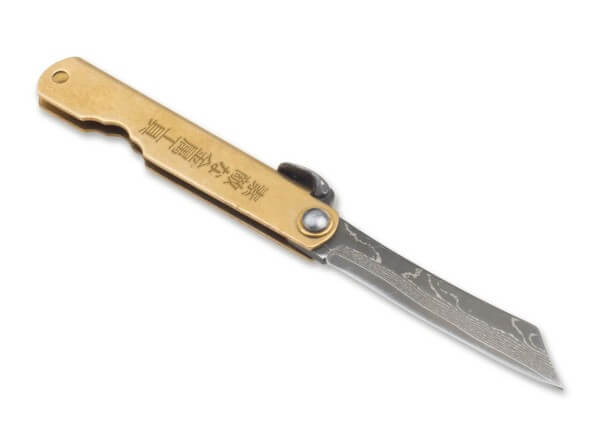
No longer available
- Pocket Knife
- Damascus
- Brass
- Friction Folder
- Friction
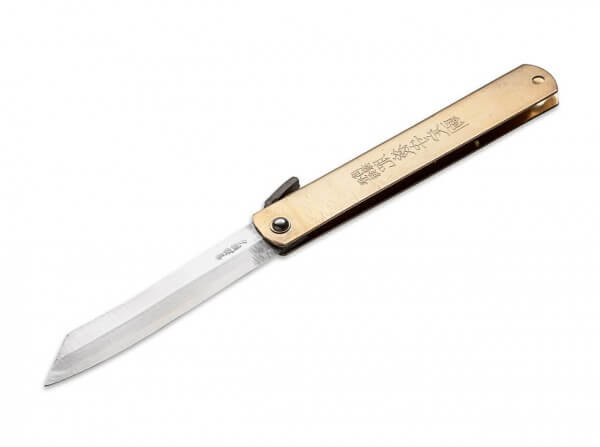
No longer available
- Pocket Knife
- Carbon Steel
- Brass
- Friction Folder
- Friction
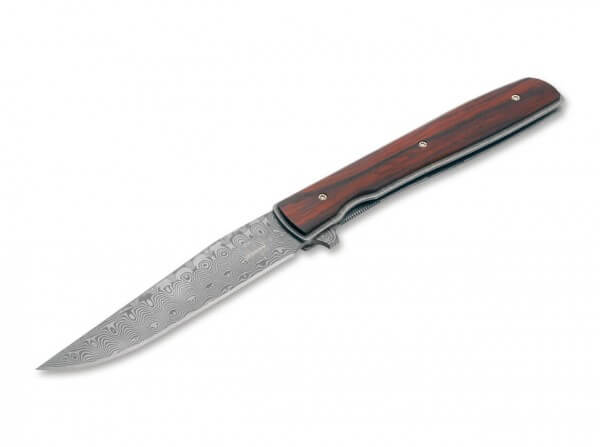
In stock
- Pocket Knife
- Damascus
- Cocobolo Wood
- Brad Zinker
- Linerlock
- Flipper
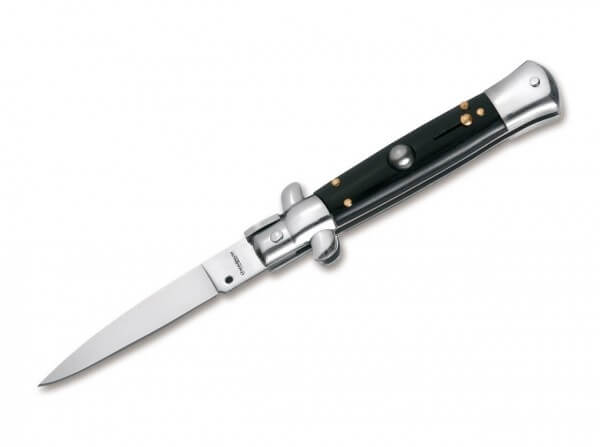
In stock
- Pocket Knife
- 440A
- Pakka Wood
- Linerlock
- Push Button
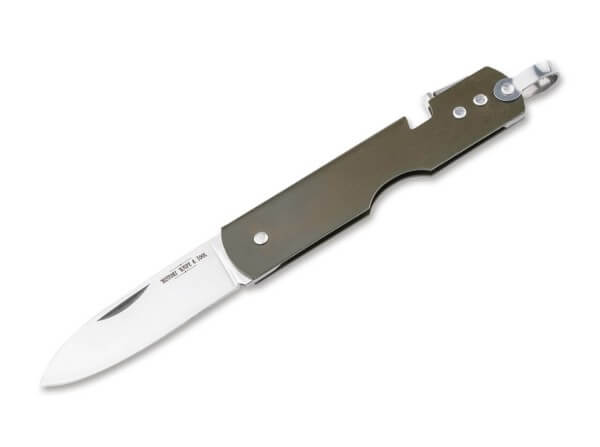
In stock
- Pocket Knife
- 440
- Nail Nick
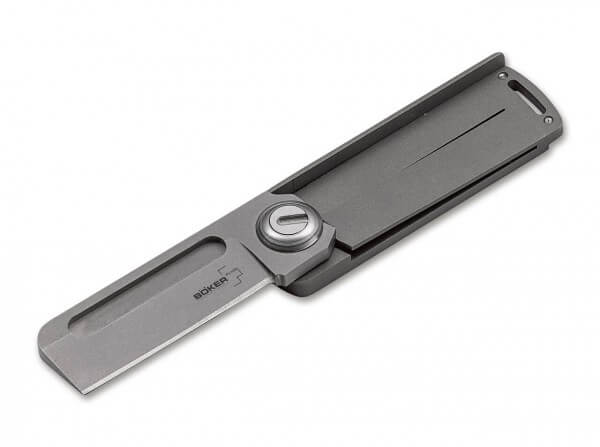
24 weeks approx. from order
- Pocket Knife
- 9Cr13CoMoV
- Titanium
- Darriel Caston
- Linerlock
- Thumb Hole
Higo
The first Higonokami knives were made as early as 1896 in the Japanese town of Miki. After the last samurai were forbidden to carry swords in public, many blacksmiths started to make knives. Higo no Kami was then an honorary title for especially powerful samurai, and it quickly became the name for the knives produced there. Since then the construction of the classic Higo has hardly changed. The handle is usually made of one piece of folded metal, the knife is opened by a lever (Chikiri) on the back of the blade. By pressing the lever while holding the knife, the blade is kept open.
|
Manufacturer information: |
The first Higonokami knives were made as early as 1896 in the Japanese town of Miki. After the last samurai were forbidden to carry swords in public, many blacksmiths started to make knives.... more
